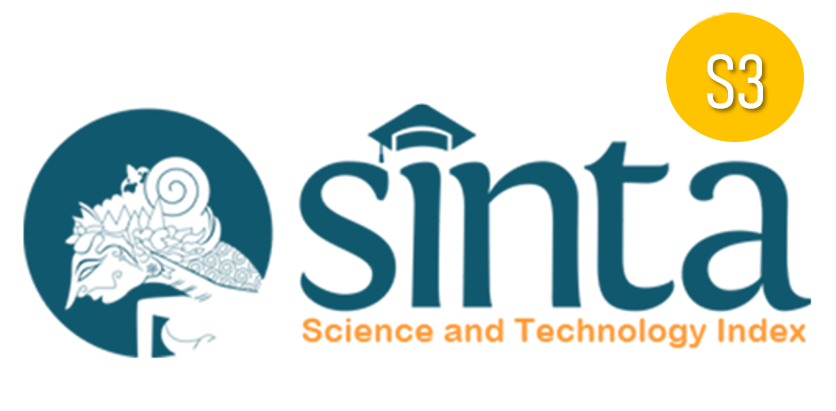Integrating Artificial Intelligence into Education: Opportunities, Challenges, and Future Prospects
Abstract
Keywords
Full Text:
PDFReferences
Agarry, R.O., Omolafe, E.V., Animashaun, V.O., and Babalola, E.O. (2022). Primary education undergraduates’ competency in the use of artificial intelligence for learning in Kwara State. ASEAN Journal of Educational Research and Technology, 1(2), 111-118.
Al Husaeni, D.F., Haristiani, N., Wahyudin, W., and Rasim, R. (2024). Chatbot artificial intelligence as educational tools in science and engineering education: A literature review and bibliometric mapping analysis with its advantages and disadvantages. ASEAN Journal of Science and Engineering, 4(1), 93-118.
Alimi, A.E., Buraimoh, O.F., Aladesusi, G.A., and Babalola, E.O. (2021). University students’ awareness of, access to, and use of artificial intelligence for learning in Kwara State. Indonesian Journal of Teaching in Science, 1(2), 91-104.
Al-Khassawneh, Y.A. (2023). A review of artificial intelligence in security and privacy: Research advances, applications, opportunities, and challenges. Indonesian Journal of Science and Technology, 8(1), 79-96.
Azizah, E.V., Nandiyanto, A.B.D., Kurniawan, T., and Bilad, M.R. (2022). The effectiveness of using a virtual laboratory in distance learning on the measurement materials of the natural sciences of physics for junior high school students. ASEAN Journal of Science and Engineering Education, 2(3), 207-214.
Bugarso, J.M.S., Cabantugan, R.E., Que-ann, D.T., and Malaco, A.C. (2021). Students’ learning experiences and preference in performing science experiments using hands-on and virtual laboratory. Indonesian Journal of Teaching in Science, 1(2), 147-152.
Ekunola, G.T., Obielodan, O.O., and Babalola, E.O. (2022). Lecturers perceived proficiency in the use of virtual classrooms for instruction in colleges of education. ASEAN Journal of Educational Research and Technology, 1(1), 7-16.
Fiandini, M., Nandiyanto, A.B.D., and Kurniawan, T. (2023). Bibliometric analysis of research trends in conceptual understanding and sustainability awareness through artificial intelligence (AI) and digital learning media. Indonesian Journal of Multidiciplinary Research, 3(2), 477-486.
Firdiarahma. F. (2021). The use of virtual reality as a substitute for the pre-school students’ field trip activity during the learning from home period. Indonesian Journal of Educational Research and Technology, 1(2), 57-60.
Kumar, D., and Suthar, N. (2024). Predictive analytics and early intervention in healthcare social work: A scoping review. Social Work in Health Care, 63(4-5), 208-229.
Mekni, M. (2021). An artificial intelligence based virtual assistant using conversational agents. Journal of Software Engineering and Applications, 14(9), 455-473.
Nurhasanah, S., and Nugraha, M.S. (2024). The future of learning: ethical and philosophical implications of artificial intelligence (AI) integration in education. Indonesian Journal of Multidiciplinary Research, 4(2), 341-352.
Pratama, M. P., Sampelolo, R., and Lura, H. (2023). Revolutionizing education: Harnessing the power of artificial intelligence for personalized learning. Klasikal: Journal of Education, Language Teaching and Science, 5(2), 350-357.
Rahayu, N.I., and Ismail, A. (2023). Trends in the use of artificial intelligence (AI) technology in increasing physical activity. Indonesian Journal of Educational Research and Technology, 3(3), 295-304.
Rahmiyanti, H. (2024). Bibliometric analysis on artificial intelligence research in Indonesia vocational education. ASEAN Journal for Science Education, 3(2), 183-192.
Rasim, R., Rosmansyah, Y., Langi, A.Z., and Munir, M. (2021). Immersive intelligent tutoring system for remedial learning using virtual learning environment. Indonesian Journal of Science and Technology, 6(3), 507-522.
Rivera, S. C., Liu, X., Chan, A. W., Denniston, A. K., Calvert, M. J., Ashrafian, H., and Yau, C. (2020). Guidelines for clinical trial protocols for interventions involving artificial intelligence: The SPIRIT-AI extension. The Lancet Digital Health, 2(10), e549-e560.
Rivky, M., Fajar, M.R.K., and Pangestu, A.R. (2022). Utilization of virtual reality chat as a means of learning communication in the field of education. ASEAN Journal of Community Service and Education, 1(1), 23-30.
Rochman, S., Rustaman, N., Ramalis, T.R., Amri, K., Zukmadini, A.Y., Ismail, I., and Putra, A.H. (2024). How bibliometric analysis using VOSviewer based on artificial intelligence data (using ResearchRabbit Data): Explore research trends in hydrology content. ASEAN Journal of Science and Engineering, 4(2), 251-294.
Salman, A.A., and Yahaya, O. (2025). Perception of early childhood education lecturers on the use of virtual learning. ASEAN Journal for Science Education, 4(1), 31-38.
Sharma, S., and Kumar, N. (2023). The future of education: Implications of artificial intelligence integration in learning environments. International Journal of Enhanced Research in Educational Development, 11(5), 129-133.
Sison, A.J.R.N., Bautista, J.M., Javier, J.R., Delmonte, R.J.B., and Cudera, R.B. (2024). Development and acceptability of virtual laboratory in learning systematics. ASEAN Journal of Educational Research and Technology, 3(1), 9-26.
Solihat, A.N., Dahlan, D., Kusnendi, K., Susetyo, B., and Al Obaidi, A.S.M. (2024). Artificial intelligence (AI)-based learning media: Definition, bibliometric, classification, and issues for enhancing creative thinking in education. ASEAN Journal of Science and Engineering, 4(3), 349-382.
Spencer, K., Ellis, R., Birch, R., Dugdale, E., Turner, R., Sebag-Montefiore, D., and Morris, E. (2017). Caution is required in the implementation of 90-day mortality indicators for radiotherapy in a curative setting: A retrospective population-based analysis of over 16,000 episodes. Radiotherapy and Oncology, 125(1), 140-146.
Tlili, A., Zhang, J., Papamitsiou, Z., Manske, S., Huang, R., Kinshuk, and Hoppe, H. U. (2021). Towards utilising emerging technologies to address the challenges of using Open Educational Resources: A vision of the future. Educational Technology Research and Development, 69, 515-532.
VanLehn, K. (2011). The relative effectiveness of human tutoring, intelligent tutoring systems, and other tutoring systems. Educational Psychologist, 46(4), 197-221.
Wang, Y., and Heffernan, N. (2020). The role of AI in personalized learning: A review. Journal of Educational Technology, 18(2), 45-59.
Zhou, Z. (2016). A framework for virtual assistants: An exploratory study. International Journal of Social Science and Business, 1(4), 49-56.
DOI: https://doi.org/10.17509/ijert.v5i1.82703
Refbacks
- There are currently no refbacks.
Copyright (c) 2025 Universitas Pendidikan Indonesia (UPI)

This work is licensed under a Creative Commons Attribution-ShareAlike 4.0 International License.







.png)




